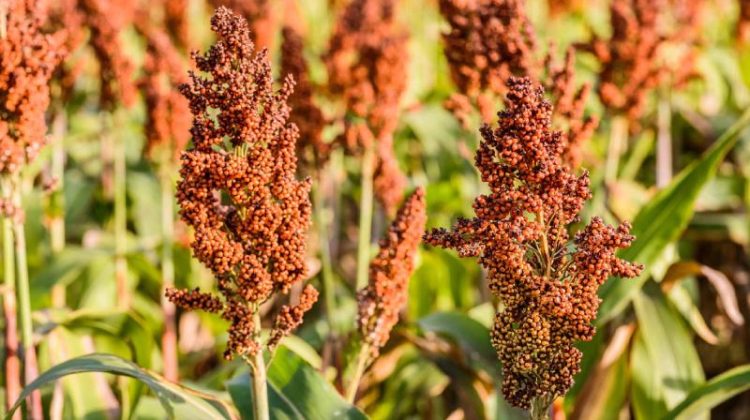
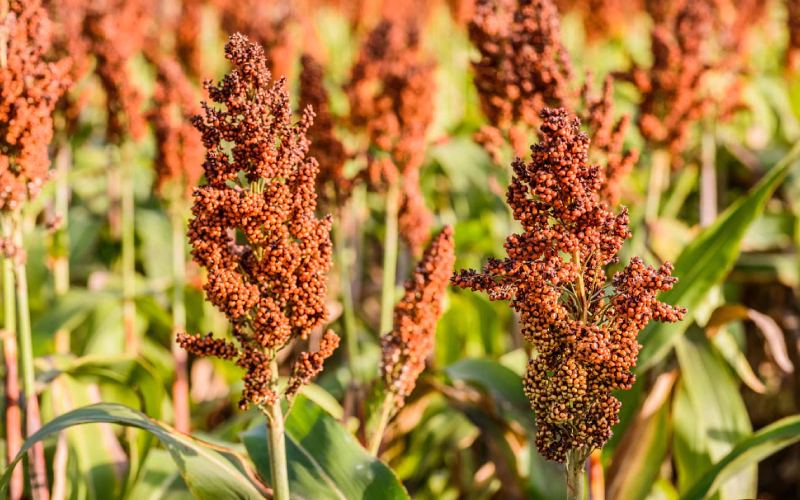
In our pursuit of better health, we often overlook the timeless treasures hidden in our own kitchens. Guinea corn and millet, ancient grains with a rich history, are two such gems that have nourished humanity for ages. These unassuming grains are brimming with health benefits that can enhance our well-being in surprising ways.
Join us on a journey to unveil the “20 Amazing Benefits of Guinea Corn and Millet.” From digestive health to heart support and beyond, these grains have much to offer. Whether you’re a health-conscious individual, a culinary explorer, or simply curious about these traditional staples, let’s dive into the remarkable advantages that guinea corn and millet bring to the table and your health.
What is a Guinea Corn?
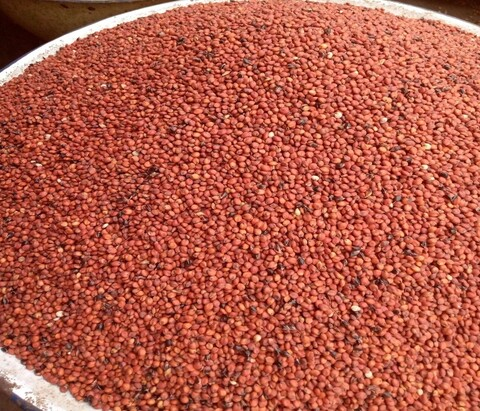
Guinea corn, also known as Sorghum bicolor, is a cereal grain widely cultivated for its edible seeds. It’s a staple in many regions, particularly in Africa, where it’s used to make various foods like porridge and flatbreads. Guinea corn is valued for its resilience in arid conditions and is rich in carbohydrates, fiber, and essential nutrients. It’s also gluten-free, making it suitable for those with gluten sensitivities. This ancient grain plays a significant role in the diets and cultures of many communities worldwide.
What is Millet?
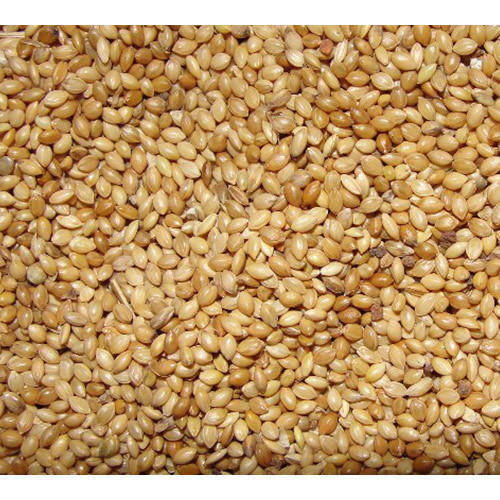
Millet, a diverse group of small-seeded cereal grains, has been cultivated globally for ages, including pearl millet, finger millet, proso millet, and foxtail millet. Resilient and adaptable, it thrives in arid regions, offering vital sustenance where other crops struggle. Millet is gluten-free, rich in energy-providing carbohydrates, fiber for digestive health, and essential nutrients like B vitamins, magnesium, and phosphorus. Its versatility shines in dishes like porridge, flatbreads, soups, and beverages, contributing to dietary diversity worldwide. Millet’s enduring presence underscores its significance in global agriculture and nutrition, benefiting communities across the globe.
Nutritional Value of Millet and Guinea Corn?
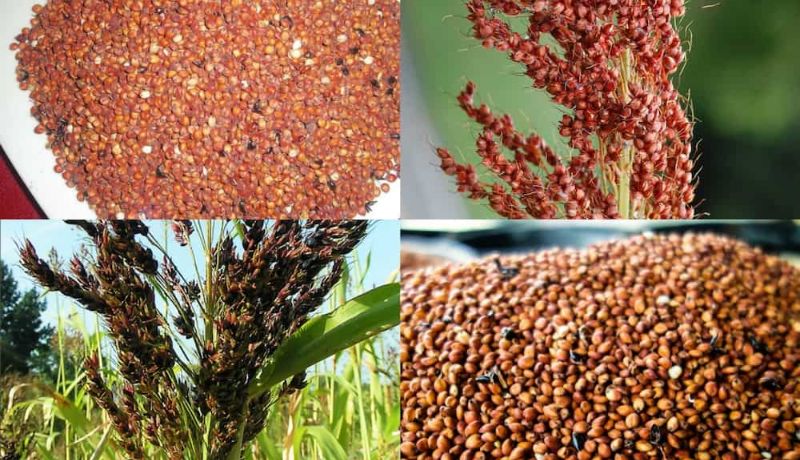
Carbohydrates: Both millet and guinea corn are rich sources of carbohydrates, primarily in the form of complex carbohydrates. These complex carbs provide a sustained source of energy, making these grains ideal for active individuals and those seeking steady energy levels throughout the day.
Protein: Millet and guinea corn contain moderate levels of protein, contributing to muscle growth and repair. These grains are valuable sources of plant-based protein.
Dietary Fiber: Both grains are excellent sources of dietary fiber, supporting digestive health by preventing constipation and promoting regular bowel movements. Additionally, the fiber content helps regulate blood sugar levels and aids in weight management.
Vitamins: Millet and guinea corn provide a range of vitamins, including essential B vitamins like niacin, thiamine, and riboflavin. These vitamins play crucial roles in energy metabolism and overall health.
Minerals: These grains are rich in essential minerals. They contain minerals such as magnesium, phosphorus, and iron. Magnesium supports muscle and nerve function, phosphorus is vital for bone health, and iron helps prevent anemia.
Antioxidants: Millet and guinea corn both contain antioxidants, including phenolic compounds. These antioxidants help protect cells from oxidative stress, reducing the risk of chronic diseases and contributing to overall well-being.
Benefits of Millet and Guinea Corn.
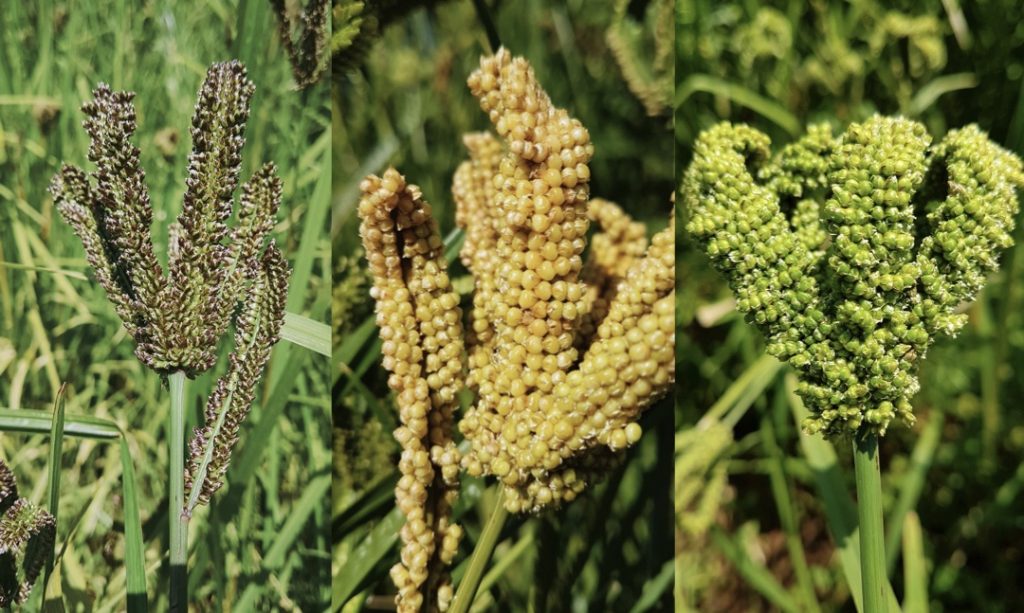
- Nutrient-Rich: Guinea corn and millet boast an impressive nutritional profile, brimming with an array of essential vitamins, minerals, and antioxidants. These nutrients play vital roles in maintaining overall health and well-being .
- Rich in Fiber: One standout feature of these grains is their high fiber content. Dietary fiber is renowned for its ability to promote digestive health by aiding in regular bowel movements, preventing constipation, and supporting a healthy gut microbiome.
- Gluten-Free: For individuals with gluten sensitivities or celiac disease, guinea corn and millet are welcome options. These grains are naturally gluten-free, ensuring that those with gluten-related issues can enjoy their nutritional benefits without any adverse reactions.
- Heart Health: The soluble fiber found in guinea corn and millet contributes to heart health by helping to lower cholesterol levels. This reduction in cholesterol levels can significantly lower the risk of heart disease, making these grains a heart-healthy choice.
- Energy Boost: These grains are excellent sources of complex carbohydrates, which provide a steady and sustained release of glucose into the bloodstream. This gradual energy release can help prevent spikes and crashes in energy levels, keeping you feeling energized throughout the day.
- Weight Management: The high fiber content in guinea corn and millet plays a crucial role in weight management. Fiber promotes a feeling of fullness, which can help curb overeating and support weight control efforts.
- Blood Sugar Control: Both grains have a low glycemic index, which means they have a minimal impact on blood sugar levels. This property makes them an ideal choice for individuals looking to manage their blood sugar and reduce the risk of type 2 diabetes.
- Bone Health: A healthy diet should include adequate mineral intake, and guinea corn and millet deliver in this regard. They are rich in essential minerals like magnesium and phosphorus, which are key players in maintaining strong bones and teeth.
- Antioxidants: Guinea corn and millet contain a range of antioxidants, including phenolic compounds. These antioxidants help protect cells from oxidative stress and reduce the risk of chronic diseases by neutralizing harmful free radicals in the body.
- Celiac-Friendly: The gluten-free nature of these grains makes them safe and nutritious for individuals with celiac disease or gluten intolerance. They can enjoy the nutritional benefits of these grains without worrying about gluten-related health issues.
- Aid in Digestion: As previously mentioned, the fiber content of guinea corn and millet is a boon for digestive health. Adequate fiber intake can help prevent constipation and promote regular bowel movements, ensuring a healthy digestive system.
- Improved Immunity: The vitamins and minerals present in these grains, such as zinc and vitamin C, contribute to a strengthened immune system. A robust immune system is essential for warding off illnesses and infections.
- Iron Source: Iron is a vital nutrient for preventing anemia and maintaining healthy energy levels. Guinea corn and millet serve as good sources of iron, making them a valuable addition to a diet aimed at preventing iron-deficiency anemia.
- Rich in B Vitamins: B vitamins, including niacin, thiamine, and riboflavin, are essential for energy production and overall health. These grains provide a natural source of these important vitamins.
- Reduced Risk of Colon Cancer: The fiber content in guinea corn and millet contributes to a lower risk of colon cancer. Fiber promotes a healthy gut microbiome, which plays a role in preventing the development of colorectal cancer.
- Enhanced Cardiovascular Health: Potassium, found in millet, is known to help regulate blood pressure. Consuming millet can contribute to reduced hypertension risk and overall cardiovascular health.
- Anti-Inflammatory: Certain compounds present in these grains have demonstrated anti-inflammatory properties. This characteristic may aid in reducing the risk of chronic inflammatory diseases.
- Improved Skin Health: The antioxidants found in guinea corn and millet can be beneficial for the skin. Antioxidants help protect the skin from oxidative damage, potentially leading to healthier and more vibrant skin.
- Brain Health: B vitamins are crucial for cognitive function, and their presence in these grains can contribute to improved brain health. Additionally, B vitamins may reduce the risk of age-related cognitive decline.
- Muscle Health: Protein is essential for muscle growth and repair, and guinea corn and millet contain a notable amount of protein. This protein content makes them a valuable addition to a diet aimed at maintaining muscle health.
Frequently Asked Question
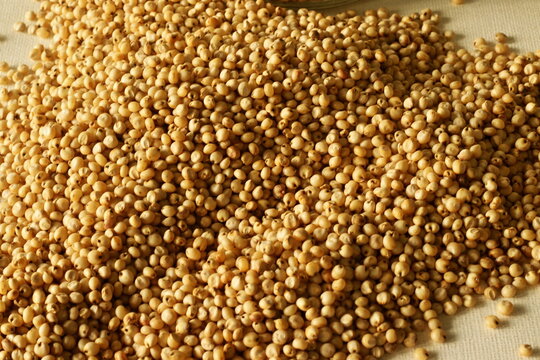
Which is more nutritious guinea corn or millet?
Both guinea corn (sorghum) and millet are nutritious grains with similar profiles. They are rich in carbohydrates, fiber, protein, vitamins, and minerals. The choice between them often depends on personal preference, regional availability, and culinary uses. Both grains offer valuable health benefits, and incorporating a variety of grains into your diet can provide a well-rounded nutritional intake.
Can millet be mixed with guinea corn?
Yes, millet and guinea corn can be mixed together in various culinary preparations. Combining these grains can create a diverse and nutritious blend of flavors and textures. Whether in porridge, flatbreads, or other dishes, blending millet and guinea corn offers a versatile way to enjoy the nutritional benefits of both grains while enhancing the overall dining experience.
What are the benefits of millet and guinea corn pap?
Millet and guinea corn pap, also known as porridge, is a nutritious and energy-boosting dish. It offers a rich source of carbohydrates, fiber, vitamins, and minerals, promoting digestive health and providing a sustained source of energy. This hearty porridge can help with weight management, maintain steady blood sugar levels, and contribute to overall well-being. Additionally, its versatility allows for various flavorings and toppings, making it a delicious and customizable part of a balanced diet.
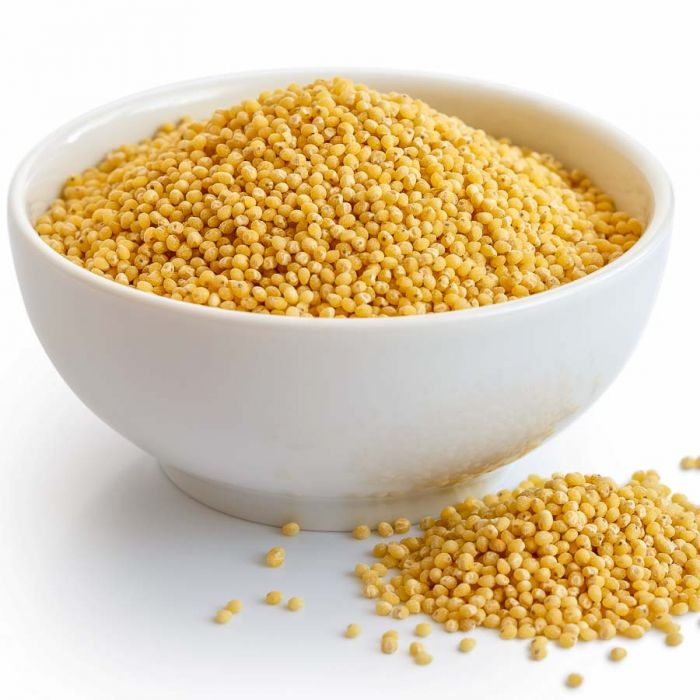
Is guinea corn good for diabetic?
Yes, guinea corn (sorghum) can be a good choice for individuals with diabetes. It has a low glycemic index, which means it has a minimal impact on blood sugar levels. The slow release of glucose into the bloodstream from guinea corn can help stabilize blood sugar, making it a suitable option for diabetic individuals when consumed in moderation as part of a balanced diet. However, it’s essential to consult with a healthcare professional to determine the best dietary choices for managing diabetes.
How many days should I soak millet and guinea corn for pap?
To prepare millet and guinea corn pap, it’s recommended to soak them overnight or for at least 6 to 8 hours. Soaking softens the grains, making them easier to blend and cook into a smooth and creamy pap. This process also helps improve the digestibility of the grains and may enhance their nutritional value.
What is the best food to control diabetes?
The best foods to control diabetes include complex carbohydrates like whole grains (such as quinoa, brown rice, and whole wheat), lean proteins (like poultry, fish, and tofu), plenty of non-starchy vegetables, and healthy fats (such as avocados and nuts). These foods help stabilize blood sugar levels, provide essential nutrients, and support overall health when incorporated into a balanced and portion-controlled diet. It’s crucial to work with a healthcare professional or registered dietitian to create a personalized diabetes management plan based on your specific needs and preferences.
What kind of corn is best for diabetics?
For diabetics, corn with a lower glycemic index, such as whole-grain corn or corn on the cob, is a better choice than highly processed corn products like cornflakes or corn chips. Whole-grain corn releases glucose into the bloodstream more slowly, helping to regulate blood sugar levels. It’s essential to consume corn in moderation as part of a balanced diet and be mindful of portion sizes to manage blood sugar effectively.
Related Articles
55 Most Popular American Foods Worth Craving in 2023
The Healthiest Breads To Eat for Weight Loss, According to Dietitians
Quick Steps to Cook Delicious Edikang Ikong Soup
Are cashew nuts good for you|15 effects of eating cashew nuts.
Healthiest Meals at Captain D’s Under 500 Calories
Conclusion
Incorporating guinea corn and millet into your daily meals is a versatile and enjoyable way to reap the many health benefits they offer. These grains can be used as a base for porridge, added to soups and stews, served as a side dish, or even used in baking, such as in bread and muffin recipes. With their exceptional nutritional value and adaptability, guinea corn and millet can play a significant role in enhancing your overall health and well-being.
